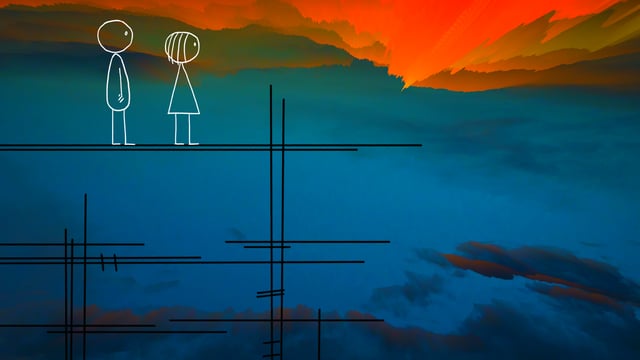Our lonely posthuman grandchildren

In ”World of Tomorrow”, one of the nominees in this year’s Animated Short category at the Academy Awards, the small child Emily is contacted by her third generation clone from the future. The clone takes her on a journey through an unsettling future set in the wasteland of the transhumanist project: Women get impregnated with perfect clones of themselves when they are old enough, and transfer their minds to these clones when their old bodies deteriorate. The clone visiting Emily has experienced increased detachment from being human in her life, and has fallen in love with a moon rock, a machine and an alien in her life span. She has also loved a male clone modeled on the first clone built to be an exhibit at an art museum, but as he dies and she lives on, humanity slowly transfers to the “Outernet”, a disembodied digital existence where the clones (echoing Houllebecq’s The Possibility of an Island) live lonely lives contemplating the memories of their ancestors.
The real posthuman moment in this short but conceptually heavy animated film is the interaction between Emily and the clone: Emily, who is, in her wide-eyed fascination of what she sees and her childish joy in being where she is right now, human innocence incarnate. Her cloned future self has lost the connection to the world or herself in humanity’s quest for eternal life, and thus needs to meet with her former child self. The clones essentially skip being children, since you transfer your mind to a fully grown clone when your old body deteriorates, and that seems to be why they are losing their sense of self. Has transhumanism, with its focus on superintelligence and improvement, lost sight of how being a child is crucial to a human beings’ development of a sense of self, a sense of what is meaningful and beautiful and, ultimately, worth holding on to when faced with new possibilities for enhancement?
See an excerpt of the work here:
